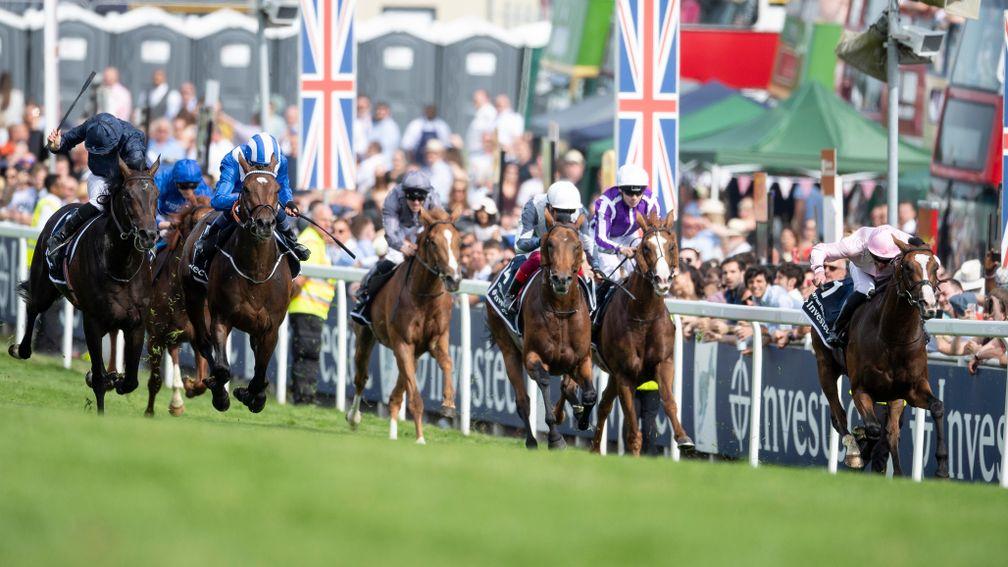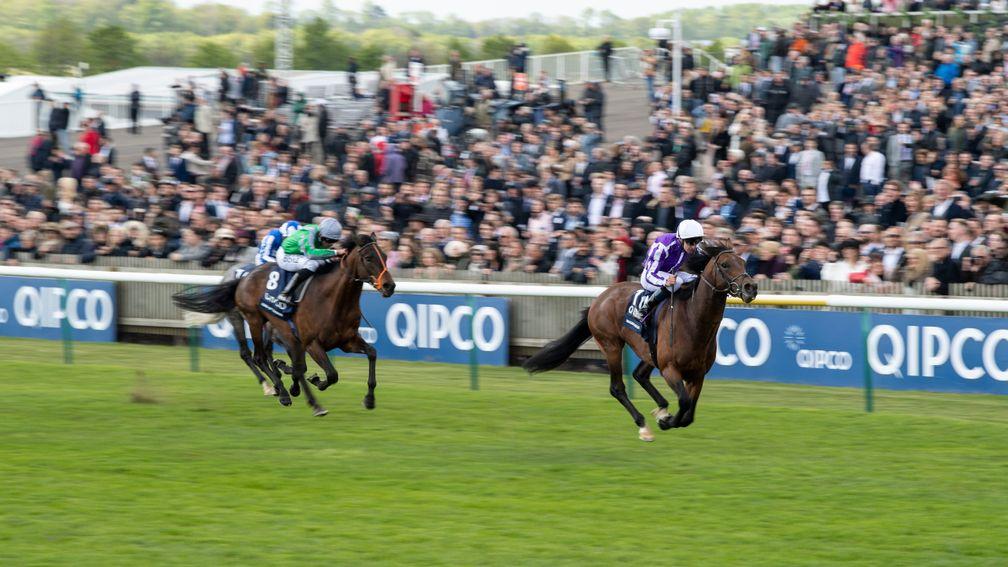- More
Classic shake-up part of provisional plan for resumption of racing

The 1,000 and 2,000 Guineas could be run in early June and the Derby and Oaks in early July in a "best-case scenario" put forward by the BHA.
The season's first four Classics have been put back by the suspension of racing, which was extended this week.
But the cross-industry groups working on the resumption of racing have drawn up a programme that puts them either side of an unmoved Royal Ascot, which is scheduled to take place behind closed doors in its existing slot starting on June 16.
The provisional plan, which was sent to trainers on Friday with the proviso that it is entirely dependent on racing being given the go-ahead to resume, also envisages several Classic trials and other trial races feeding into Royal Ascot being run in the second half of May, although a later restart would require those to be adjusted accordingly.

It is unlikely the entire black-type schedule will be staged in 2020 and the BHA stressed that the watchword in planning a salvaged Pattern programme is "prioritising the scheduling of the Classics, as well as the other key races which are aimed at horses most likely to provide a future fundamental role on behalf of the breed".
The BHA added: "We will of course be looking to ensure that our best horses have suitable opportunities to develop and to demonstrate the best of their ability within an appropriate and meaningful structure of races, but this will require the cooperation, flexibility and mutual understanding of many parties."
That will mean some Group 1 races for older horses may be required to move to different dates, especially in order to accommodate the early Classic races, and some may not be open to three-year-olds this season.
Derby and Oaks-winning trainer William Haggas accepted that a reduction in the black-type programme was "inevitable" and said: "I'm on the Pattern committee and there's a lot of work for the executives to do, to give a balance to the Pattern that suits everyone and is meaningful.
"We need to try to get the Classics going, we can't have a complete year wasted with no potential superstars going to stud. We've got to keep the wheels turning."
When racing resumes, without spectators, early opportunities to race are likely to be restricted.
With no income from crowds and betting shops potentially still closed, there will be a greater reliance on the Levy Board for prize-money. That will limit the fixtures that can be staged and also impact on prize-money values.
Not all courses will be able to race behind closed doors or meet criteria around risk mitigation, and field sizes will also be limited to support social distancing and minimise the risk of incidents.
So fixtures will be extended beyond the normal number of races, possibly by staging more divisions than usual.
Handicaps could be run with non-standard rating bands and made open to horses after just two starts, while some maidens could be restricted to unrated horses eliminated from standard novice and maiden events.
The BHA stressed: "A key consideration in this planning is minimising the risk of injury and incident so that we do not increase the burden on local NHS and medical services.
"It is important to emphasise that while these plans are being formulated with a view to recommencing racing at the earliest opportunity, the timing of this decision will be dependent on an easing of government restrictions.
"By planning effectively now, we can demonstrate to government that the sport has a coordinated and practicable strategy for resumption; one that is deliverable and mitigates risk."
Read more:
Hardship package of £22m revealed to help in racing's 'incredibly tough battle'
Mark Johnston in isolation having been 'really poorly' with the coronavirus
BHA extends suspension of racing in Britain with no date set for sport's return
Tom Dascombe: horses are going out of training left, right and centre
Keep up to date on the must-have news, tips, photos and more by following the Racing Post across all social channels
Published on inCoronavirus
Last updated
- 'We might be surprised about the racecourses that go - it's a precarious time'
- 'It's not all doom and gloom' - the long-term future of racehorse ownership
- Hysteria and dizzying change the only certainties for an industry under fire
- 'It will recover, it's only a question of when and how many casualties'
- 'I think we'll end up with fewer trainers than we've had for a long time'
- 'We might be surprised about the racecourses that go - it's a precarious time'
- 'It's not all doom and gloom' - the long-term future of racehorse ownership
- Hysteria and dizzying change the only certainties for an industry under fire
- 'It will recover, it's only a question of when and how many casualties'
- 'I think we'll end up with fewer trainers than we've had for a long time'